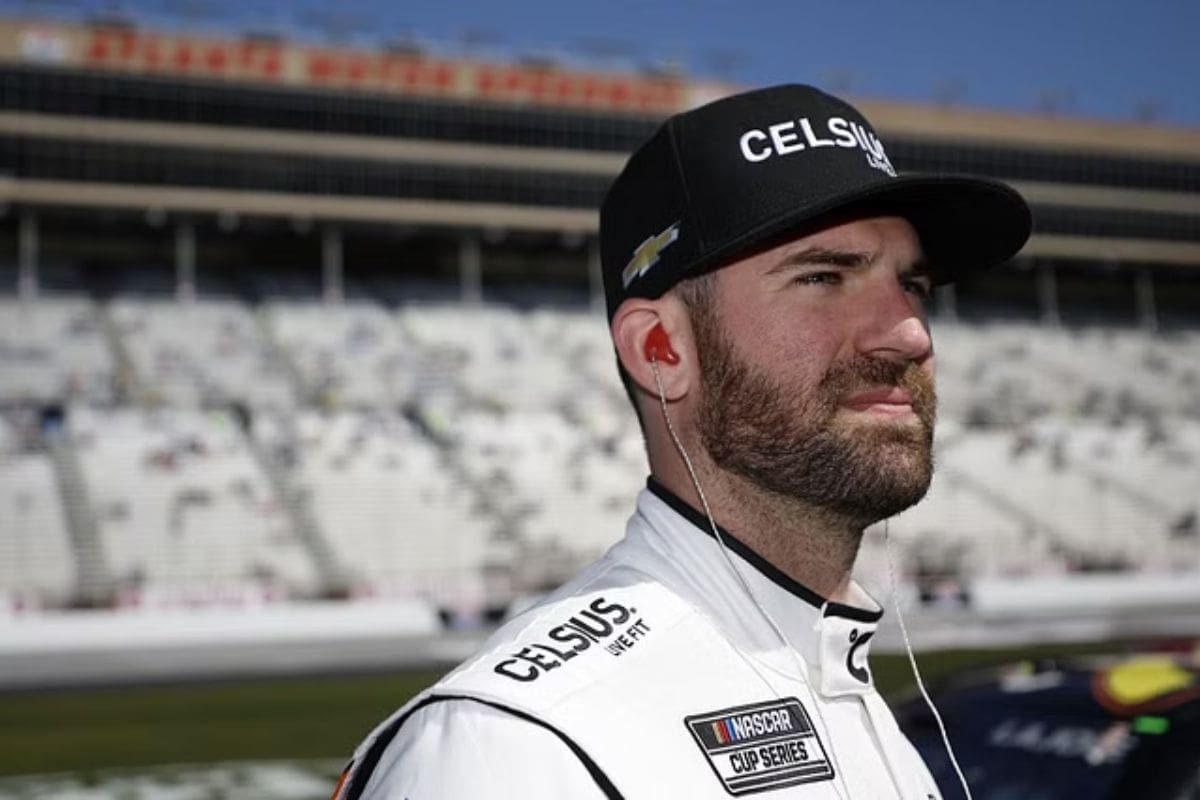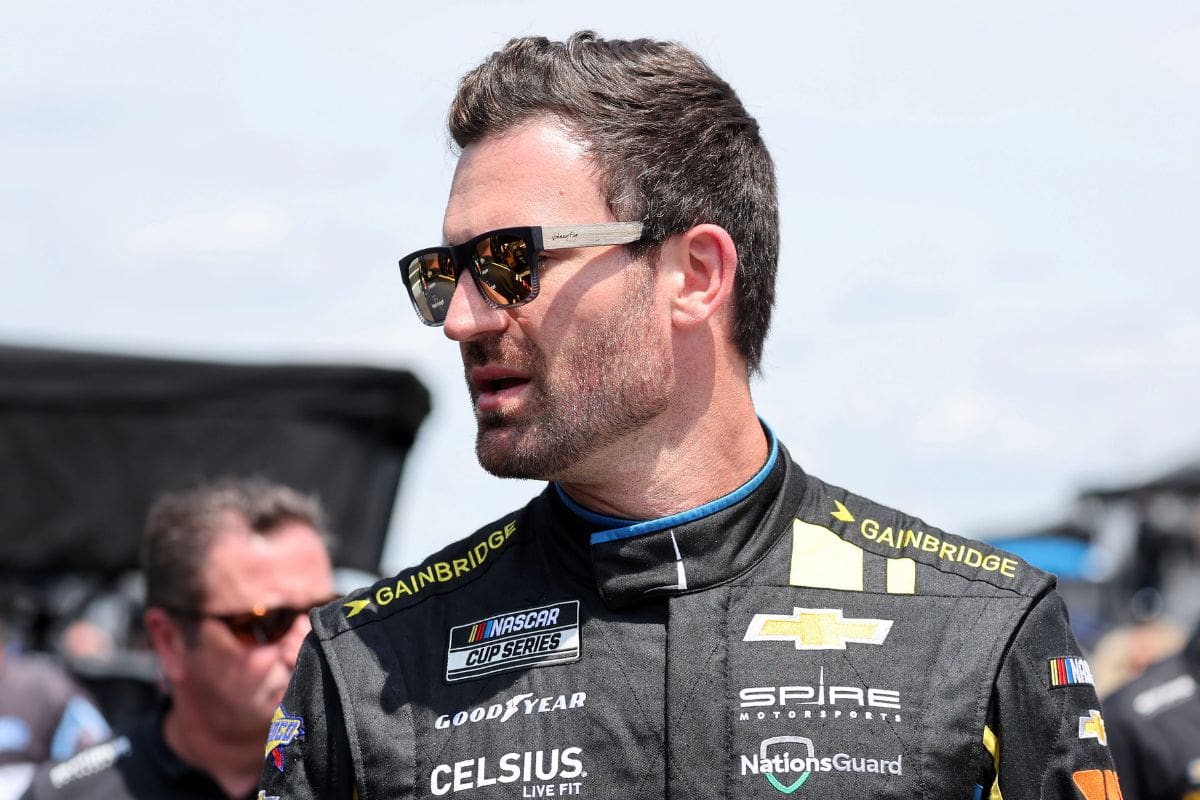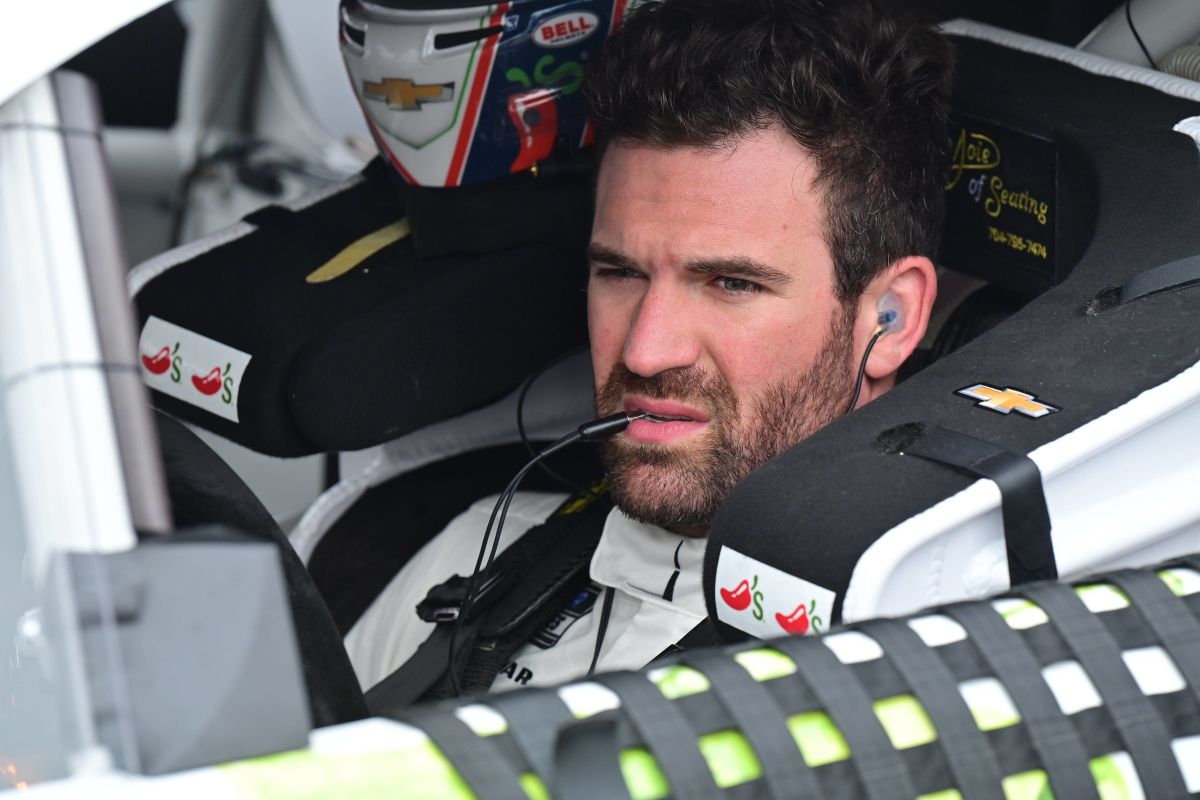Corey LaJoie Calls Out Kyle Busch: The recent exchange between Corey LaJoie and Kyle Busch following the Watkins Glen incident has illuminated the intricate balance of rivalry and sportsmanship within NASCAR. LaJoie’s frank remarks about “waiting on payback“ reflect personal accountability and hint at a deeper narrative of competitive tension that could influence future races. As tensions escalate between these two drivers, one must consider how such conflicts shape team dynamics and strategies. What implications might this rivalry hold for the rest of the season.
Key Highlights
- Corey LaJoie admitted fault for the collision with Kyle Busch, acknowledging the importance of racing etiquette.
- LaJoie’s comments suggest he anticipates retaliation from Busch following their on-track altercation.
- The incident at Watkins Glen intensified existing tensions between the two drivers, reflecting ongoing rivalries in NASCAR.
- LaJoie’s crew displayed strong emotions, with remarks indicating they believe Busch’s actions contributed to the crash.
- Previous incidents between LaJoie and Busch have created a competitive atmosphere, heightening fan expectations for future confrontations.
Incident Overview
Amidst the intense competition of the NASCAR season, Corey LaJoie and Kyle Busch found themselves entangled once again during the race at Watkins Glen. The incident occurred early in the race when LaJoie, attempting to give Busch space, inadvertently made contact with the left rear of Busch’s car, sending him crashing into the wall. This collision not only altered the course of Busch’s race but also highlighted the complex dynamics of driver interactions on the track.
LaJoie, reflecting on the incident during his “Stacking Pennies” podcast, acknowledged his fault in the wreck. His intention was to avoid crowding Busch; however, the outcome proved disastrous. The phrase “there’s a magnet for the 7 and the 8 car” resonates deeply, hinting at a recurring theme of misfortune between the two drivers. LaJoie’s admission of responsibility reveals a sophisticated understanding of racing etiquette and the fine line that separates aggressive driving from reckless behavior.
“So I wanted to give the 8 room there off the wall, didn’t want to crowd him.”
“And then I ended up coming into his left rear there, so there’s really no excuse for that. I was trying to… my only intention the first lap was to get singled out and not ruin anybody’s day and that’s the exact opposite of what happened.”
“There’s a magnet for the 7 and the 8 car, unfortunately, and he’s had the short end of the stick. So I’m just waiting on payback.” – LaJoie
As the season progresses, the implications of this incident extend beyond mere statistics. LaJoie’s open anticipation of retribution highlights the psychological aspect of racing, where drivers must navigate not only the physical challenges of the track but also the interpersonal relationships that develop over time.
Previous Incidents
Throughout the 2023 NASCAR season, tensions between Corey LaJoie and Kyle Busch have frequently escalated on the track, resulting in multiple notable incidents. Remarkably, their rivalry reached a boiling point at Pocono, where LaJoie was involved in a controversial collision that took Busch out of the race. While Busch maintained a low profile following the incident, his displeasure was palpable, particularly regarding LaJoie’s comments on the wreck. This incident exemplified the growing animosity between the two drivers, contributing to the narrative of their contentious relationship.
These incidents highlight the evolving dynamics between LaJoie and Busch and reflect the broader competitive nature of NASCAR, where rivalries often ignite fierce competition.
As the season progresses, the anticipation of further clashes continues to build, leaving fans keen to witness how this rivalry will unfold. The implications of their confrontations resonate beyond the racetrack, shaping both drivers’ images within the sport.
Radio Chatter and Crew Reactions
Following yet another contentious incident on the track, the radio chatter from Corey LaJoie’s team revealed a clearly defensive stance regarding the wreck that had just unfolded. LaJoie’s crew, reacting to the aftermath of the collision with Kyle Busch, exhibited a palpable urgency to shift the blame away from their driver.
“He hooked himself,” came a declaration from the pit, suggesting that Busch’s tactics were self-sabotaging rather than the result of LaJoie’s actions. This sentiment highlights a broader theme in racing dynamics—where teams often circle the wagons to protect their driver’s reputation, particularly following a high-stakes incident.
The intensity of emotions was further amplified by a team member’s expletive-laden remark, “F* him,” reflecting a collective frustration that transcended the immediate situation. This reaction captures the fierce competitiveness inherent in NASCAR, where rivalries can quickly escalate into personal feuds.
Crew chief Ryan Sparks added fuel to the fire by asserting that Busch “got what he deserved,” hinting at an underlying tension that had been brewing throughout the race. Sparks alluded to a previous block by Busch that may have catalyzed their contentious relationship, suggesting that this incident was merely the climax of ongoing hostilities.
News in Brief: Corey LaJoie Calls Out Kyle Busch
The recent comments by Corey LaJoie regarding the Watkins Glen crash with Kyle Busch highlight the complexities of rivalries in NASCAR. Such incidents not only affect the immediate race dynamics but also influence long-term relationships among drivers. LaJoie’s anticipation of “payback” signals a deeper competitive tension that may shape future encounters on the track. The interplay of strategy, reputation, and psychological warfare continues to define the landscape of NASCAR, showing the sport’s intricate nature.
ALSO READ: Is Corey LaJoie Leaving Cup Series for Truck Series? The Truth Behind the Major Move



